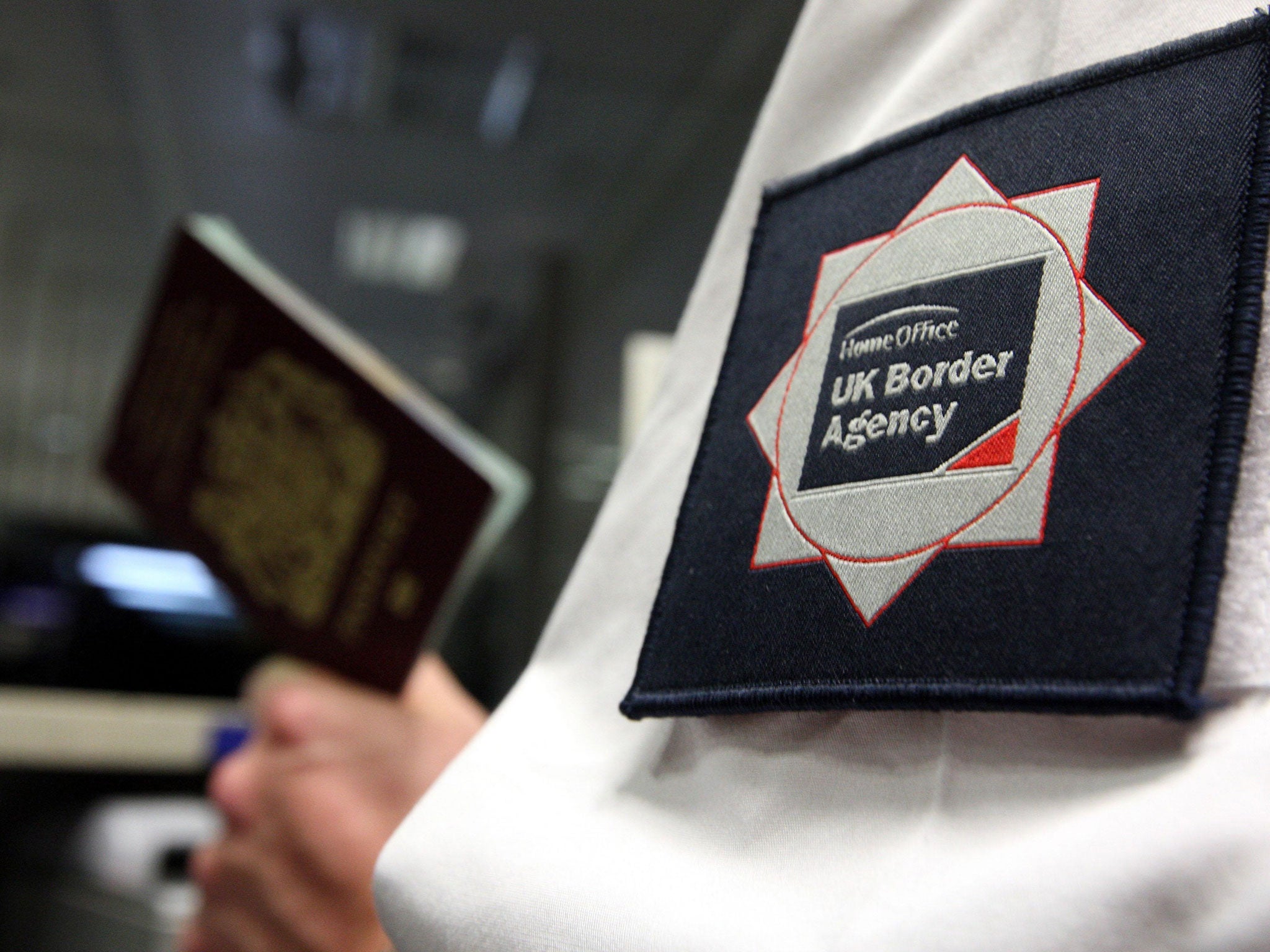Romanian and Bulgarian migration: Ukip urged to apologise over immigration 'lies and rhetoris'
There are now 4,000 fewer people from the two countries employed in Britain since ‘floodgates’ opened last year

Your support helps us to tell the story
From reproductive rights to climate change to Big Tech, The Independent is on the ground when the story is developing. Whether it's investigating the financials of Elon Musk's pro-Trump PAC or producing our latest documentary, 'The A Word', which shines a light on the American women fighting for reproductive rights, we know how important it is to parse out the facts from the messaging.
At such a critical moment in US history, we need reporters on the ground. Your donation allows us to keep sending journalists to speak to both sides of the story.
The Independent is trusted by Americans across the entire political spectrum. And unlike many other quality news outlets, we choose not to lock Americans out of our reporting and analysis with paywalls. We believe quality journalism should be available to everyone, paid for by those who can afford it.
Your support makes all the difference.Numbers of Romanians and Bulgarians working in Britain have fallen by 4,000 in the first three months since visa restrictions were scrapped, official figures revealed today.
The statistics contradict claims by the UK Independence Party (Ukip) that Britain would be hit by an influx of workers from the two east European states once the transitional controls were lifted on January 1.
Ukip warned that the “floodgates will open”, while the pressure group Migration Watch predicted 50,000 arrivals a year from Romania and Bulgaria.
Danny Alexander, the Liberal Democrat Chief Secretary to the Treasury, said the new figures “gave the lie to Ukip’s scaremongering on immigration”. He said: “The very modest numbers of Romanians and Bulgarians coming to work in Britain this year is in stark contrast to the inflammatory rhetoric of earlier this year.”
Ahead of the removal of visa controls, the Government also rushed in changes to welfare rules designed to deter “benefit tourism” and David Cameron called for new rules on “freedom of movement” for new EU member states.
Read more: Nick Clegg: We can create a place where all young people can get ahead
The Office for National Statistics reported that there were 140,000 Romanians and Bulgarians employed in the UK in the first quarter of 2014. That was a fall of 4,000 on the final three months of last year, but an increase of 28,000 over the last 12 months.
Keith Vaz, the chairman of the Commons home affairs select committee, demanded an apology from Ukip and others who “promised the end of the world”.
Keith Vaz went to Luton airport on 1 January to assess numbers of new arrivals from the two countries, only to encounter one passenger.
He said: “The committee viewed for itself how the supposed flood of immigration from Romania and Bulgaria was little more than a trickle.
"It would appear now that many may have actually left the UK.
"Those, including UKIP, who promised the end of the world on January 1, now owe the public and those from Romania and Bulgaria a full apology.”
Ukip pointed to separate ONS statistics, showing numbers of foreign workers in Britain has risen by 292,000 over the last year.
Its leader, Nigel Farage, said they demonstrated that Coalition immigration policy was an “abject failure”. He said: “Far from controlling immigration, this government has shown it has absolutely no control over Britain's borders and no intention of putting the British people first.”
Sir Andrew Green, chairman of Migration Watch UK, said: “These quarterly statistics always fluctuate. The latest annual figures show an increase of 28,000, in a period when restrictions were in place for nine months.
“We believe they are consistent with our estimate of a 50,000 population increase from Romania and Bulgaria for each of the next five years.”
* A minister has admitted the Government would not hit its target of reducing net migration to tens of thousands.
Anna Soubry, the defence minister, said: “At the moment we don’t seem to be on course.”
The latest figures showed net migration running at more than 210,000. New figures will be published next week.
Join our commenting forum
Join thought-provoking conversations, follow other Independent readers and see their replies
Comments